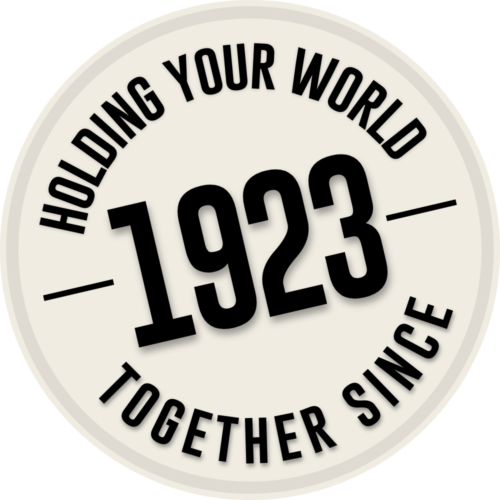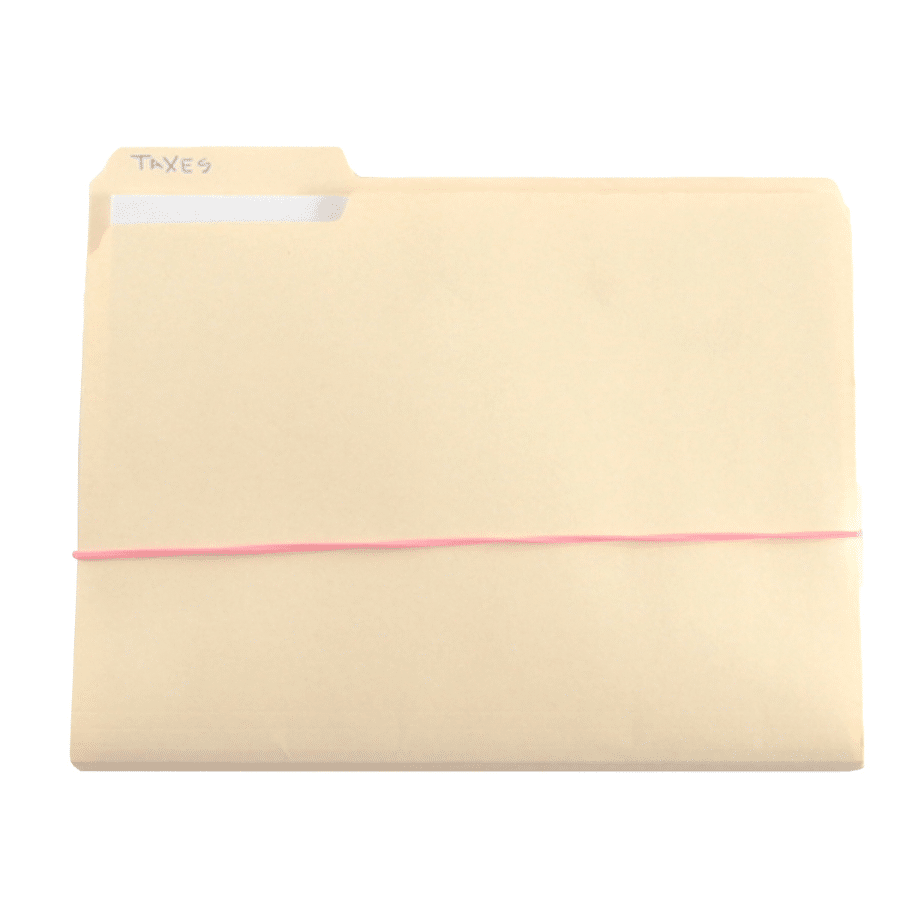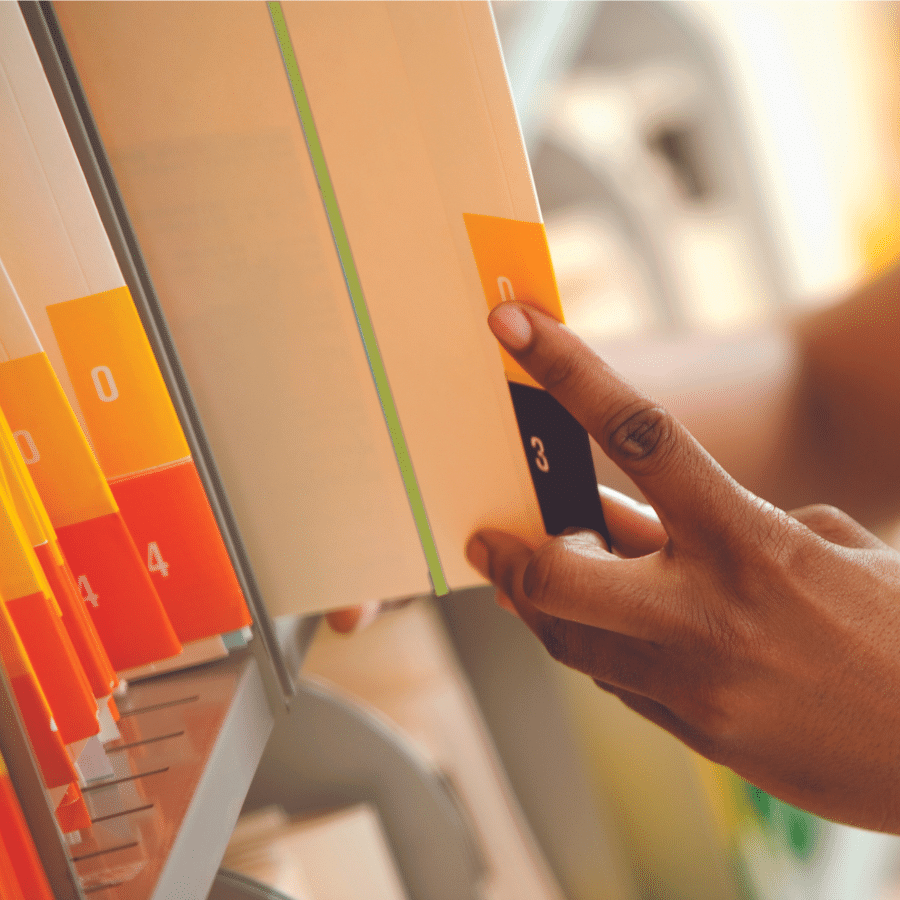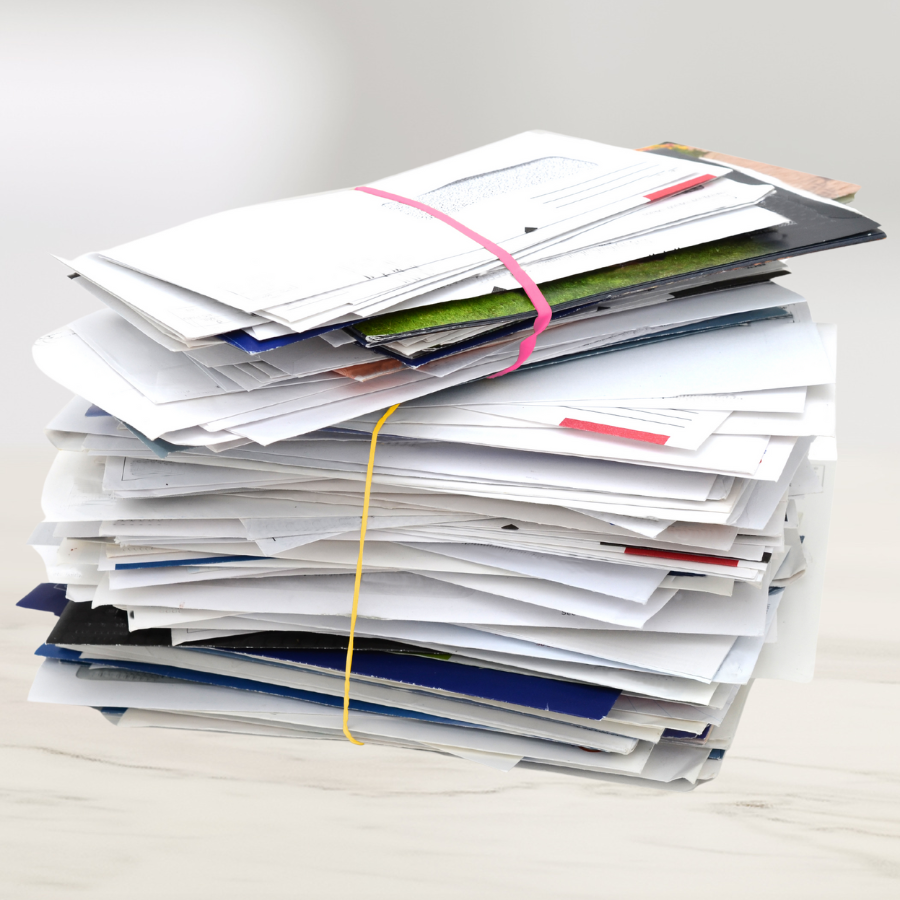Are your tax files in order?
The IRS currently stores more than 1 billion historical paper documents at their campuses nationwide. With this year’s tax filing season already underway, they’re gearing up to receive even more. While a majority of taxpayers file electronically, millions of paper tax returns and other forms are still sent to the IRS every year. Last year, 26 million individual and business returns were filed on paper. With all that paperwork – you can be certain they have a healthy system of office organizers to help them effectively process and track each return.
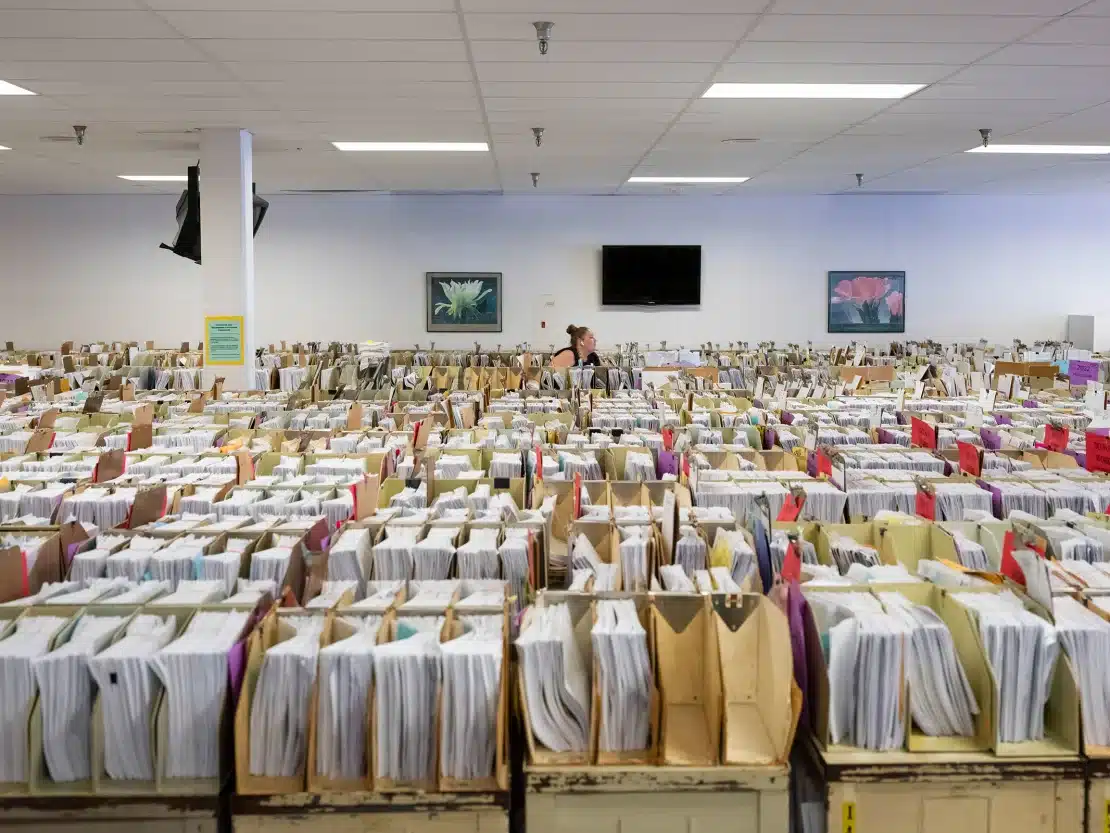
Take a look at the paper returns that were received during the COVID-19 pandemic. During this time, many IRS employees worked from home and the mail couldn’t be opened. Once operations opened again, the IRS had a mountain of paper returns to sort. In fact, there were so many that the only place large enough to store them was the IRS cafeteria. If you look closely within each beautifully organized file box, you will see that the organizational tool of choice was rubber bands. If you look even closer, you will see that the IRS used an array of natural crepe, red, and green rubber bands to color-code as well!
Organize your paperwork like a pro
Although it might feel like it, it’s highly unlikely that you’ll have 1 billion paper documents for your tax return. But that doesn’t mean you have to use different organizational tools than the IRS. The tools that are used by the IRS are the same tools that you can find in the stationery department at your local supermarket!
- One place to file/store things
- Rubber bands in assorted sizes (for smaller items such as receipts or business cards)
- File bands for paperwork
- File boxes or folders
- Sticky notes in bright colors
- Markers and highlighters
Quick Organization Tips
What tax records should I keep?
According to the IRS, “You must keep records, such as receipts, canceled checks, and other documents that support an item of income, a deduction, or a credit appearing on a return as long as they may become material in the administration of any provision of the Internal Revenue Code, which generally will be until the period of limitations expires for that return.” Put simply, you will need to save anything that supports the figures you entered on your return.
The IRS recommends keeping records such as:
- Tax-related records. This includes wage and earning statements from all employers or payers including payment apps or cards.
- IRS letters, notices, and prior year tax return. Taxpayers should keep copies of prior year tax returns and notices or letters they receive from the IRS.
- Property records. Taxpayers should also keep records relating to property they dispose of or sell.
- Business income and expenses. Business taxpayers should find a bookkeeping method that clearly and accurately reflects their gross income and expenses.
- Health insurance. Taxpayers should keep records of their own and their family members’ health care insurance coverage.
Quick Organization Tips
One final piece of advice from the IRS:
“Wading through a pile of statements, receipts, and other financial documents when it’s time to prepare a tax return can be frustrating for people who haven’t managed their records.”
Having your records in one place will not only help you find the answers you need quickly, but will also help you make the most of your financial resources. This is why preparing and organizing your tax records should be considered a year-round activity.
